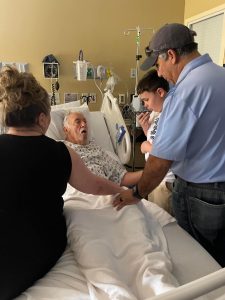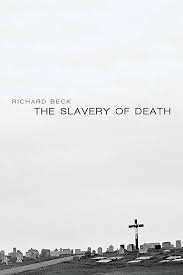
Confronting finitude
A status report on my Dying Well Plan. You can read my previous post HERE.
People who want to die well must be willing to confront their finitude. We do not have to accept death, invite it, or wish for it. But we must be prepared to say, “Yes, I am human and therefore mortal. One day I will die.” We cannot both cling to the indefinite extension of life and effectively prepare for death.
The Lost Art of Dying
Since committing to develop a Dying Well Plan, it has become clear any such plan is a contingency plan. Planning for death is a crap shoot. Death is enevitable, time and circumstances are TBD. However, there are reasonable probabilities for my remaining time, and few factors in my control; with that in mind I maintain my commitment.
—“People who want to die well must be willing to confront their finitude.” — is a basic tenet embraced in the process of developing a Dying Well Plan. Living out that conviction exposes inherent cultural resistance. Someone who reminds you “…you are going to die” is probably not who you look forward to having a conversation with. Discretion and discernment remain a challenge.
Willingness to confront my finitude has focused my attention. I see and contemplate things related to my mortality previously ignored or unnoticed; funerals and sermons, obituaries and articles, podcasts, et al, flood my consciousness. I attribute that change to paying attention. Reminders of our finitude are ubiquitous.
For me, confronting finitude includes reading secular, theological and spiritual resources.I am currently enrolled in a Life Long Learning Class entitled “End of Life and Human Flourishing”. Field work includes frequent walks through Wilmore cemetery. There are spiritual implications “…beliefs about God and an afterlife, if we have them, are often abstractions. If we don’t accept the reality of death, we don’t need these beliefs to be anything other than mental assents.” 1Tim Keller
Despite my rational, conscious acknowledgment that I would die someday, the shattering reality of a fatal diagnosis provoked a remarkably strong psychological denial of mortality. Instead of acting on Dylan Thomas’s advice to “rage, rage against the dying of the light,” I found myself thinking, What? No! I can’t die. That happens to others, but not to me. When I said these outrageous words out loud, I realized that this delusion had been the actual operating principle of my heart.
Tim Keller
Confronting finitude reveals the substance of our faith. Keller discovered: I had to look not only at my professed beliefs but also at my actual understanding of God. Had it been shaped by my culture? Had I been slipping unconsciously into the supposition that God lived for me rather than I for him, that life should go well for me, that I knew better than God does how things should go?
Unlike Keller, I have not received news of pancreatic cancer, but the truth is I am dying, and you as well. That realization is producing an opportunity for healthy self-examination. Arthur Brooks observed; “If you insist on ignoring your own demise, you are likely to make decisions that cause you to sleepwalk through life. You may not be dead yet, but you’re not fully alive either.”
Looking to be more fully alive!
…people die. All of us. We live on an edge, and people tumble off all the time. For that reason, the truth of the faith does not disappear. It is never irrelevant. Indeed, in the light of the truth of our existence, Christ’s Pascha, his death and resurrection, is the only truly relevant thing. Only if Christ has trampled down death by death can we face the naked truth of our existence with hope.
Fr Stephen Freeman
STILL ON THE JOURNEY
- 1Tim Keller


